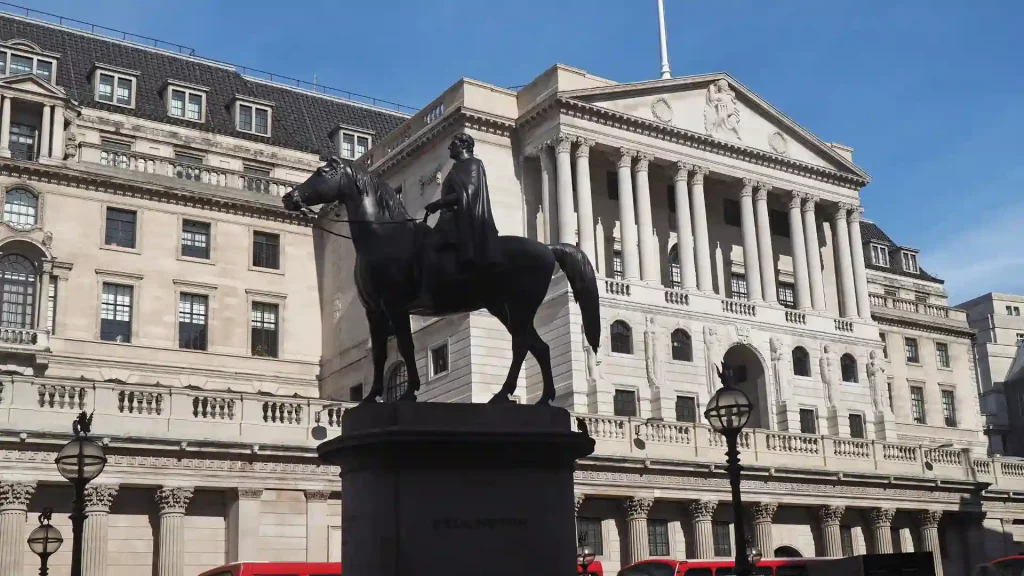Bank of England had promised to buy £65bn worth of gilts through a temporary repo facility
The Bank of England wound down its two-week emergency bond-buying program on Friday. This intervention by the Central Bank was to provide a safety net against the volatile conditions plummeting the UK bond market. The bank of England had promised to buy £65bn worth of gilts through a temporary repo facility. The tail-end of the plan, aimed at alleviating the pension fund liquidity crunch, brought uncertainty to the British bond markets on Friday.
The central bank wrapped up with a purchase of £12bn worth of gilts and £7.2bn worth of inflation-linked bonds. The yield on 30-year bonds closed at 4.852% as per Tullett Prebon data (0.2% higher than Thursday) compared to a 3.78% yield on the day before the UK government announced their mini-budget. There is an unhinged amount of skepticism about what happens when the markets reopen on Monday.
The British government’s sweeping tax cut plan set forth by the British Chancellor of the Exchequer, Kwasi Kwarteng, to kickstart economic growth spooked domestic and international investors who started selling off government bonds (UK gilts), triggering a collapse in the pension-fund LDIs.
(LDIs use interest-rate swaps linked to gilts to insulate pensions from interest-rate fluctuations).
The sale of bonds lowered the value of the swaps, and pensions required cash demands to shore up the position. The borrowing costs whipsawed on Friday following Liz Truss’s ousting of Kwarteng and reversing important elements of the initial tax plan.
The inflation rates have skyrocketed both globally and in the UK, leading to an escalation in the cost of living across advanced economies. To combat inflation, the Bank of England has increased the interest rates, which led to an influx in the UK’s gilt yields. A rise in interest rates makes the borrowing cost expensive, creating a reduction in spending and demand and, thereby, inflation. The purchase of bonds, however, increased a liquid money supply into the economy, not really playing with the inflation control strategy.
The Bank of England’s strategy of quantitative tightening by intervening in the bond market was to temporarily help pension funds recover from volatility in the market, thereby preventing wider financial problems in wider areas. Despite facing market pressures to extend gilt purchases, Bank Of England Governor Andrew Bailey closed the door on extending the programme on Friday. The pension fund industry, as well as the Pensions Lifetime Savings Association (PLSA), lobbied for an extension, reasoning that it could have allowed them to fix the underlying liquidity problems faced by the funds. Analysts assume the non-extension is linked to the bank’s attempt to disregard the impression of shielding the government from the market consequence of its own doings.
JPMorgan Chase CEO Jamie Dimon says, “Markets will continue to be volatile so long as the Federal Reserve is boosting rates and shrinking its massive balance sheet.” Pension experts have predicted that individual pensions are not akin to facing a threat since they are guaranteed by the pension protection funds of the government.
They advise people who are approaching retirement or are about to or have already accessed their pensions to draw less in the short term because that crystallizes any losses that have occurred and lets the pension pot grow again. Mortgage holders with variable rates, in particular, are at risk of being in an uncertain position since UK high-street banks base their interest rates on gilt yields. The rise in gilt yields led to an increase in mortgage costs.
Laith Khalaf, head of investment analysis at AJ Bell, says, “The Bank of England is soon planning to start selling gilts on the market, as part of its plans to unwind QE and contain inflation, so it wouldn’t make a great deal of sense for it to be buying bonds at the same time.”
However, this cannot be done unless the turmoil is near saturated. As regards the market, there is high speculation, and no gamble is certain until it reopens on Monday.
